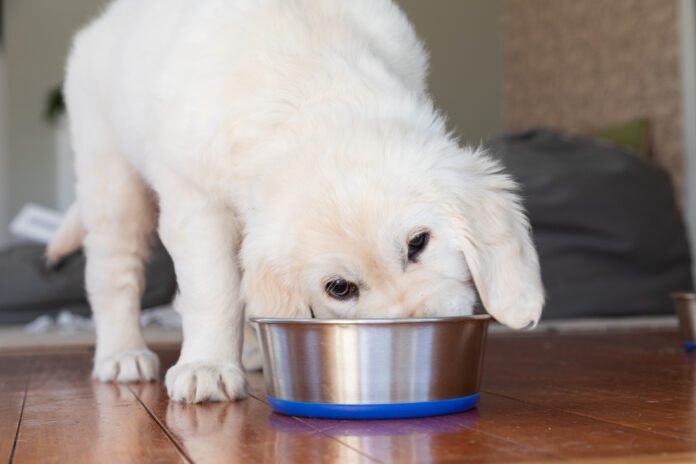How much and how often to feed a puppy is a matter of making a gradual change as your puppy acclimates to your home and his energy needs increase. Puppies need to eat more often than adult dogs to maintain blood sugar levels and support their rapid growth.
When your puppy first comes home, try to keep your puppy on the meal schedule and food that he is used to eating. Ask his breeder or the rescue you got him from what food he has been eating and how often. You can gradually tweak this feeding schedule to fit your needs, but keeping it consistent the first week or so will help your puppy settle in at his new home.
Most puppies go to their new homes between 8 and 12 weeks of age. These little guys need frequent meals to fuel their growing bodies and ideally should be eating four meals a day. Toy breed puppies often benefit from more meals, as these pocket pups are prone to developing low blood sugar levels. Provide small, frequent meals to keep your puppy happy and healthy.
Growing Up
How often to feed a puppy changes as the puppy ages. Around 12 to 14 weeks of age, you can decrease your puppy to three meals a day. The amount you feed at each meal will continue to increase as your puppy grows.
Keep your puppy at three meals a day through most of his puppyhood.
As Puppy Becomes a Teenager
Sometime when your puppy is 6 to 9 months old, you can decrease to two meals a day.
There is no hard and fast rule for when to make this switch, and some puppies may benefit from continuing three meals a day for longer:
- Toy breed puppies
- Puppies who prefer to eat smaller meals
- High energy puppies who need the extra food
Monitor your puppy’s weight and adjust the amount he eats and the number of meals as needed. Skinny puppies who play hard all the time will need more calories a day, while chunky pups who prefer to lounge and nap will need fewer calories.






